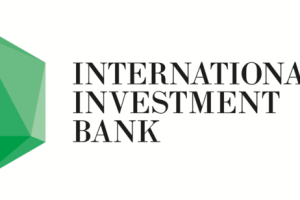Alătură-te comunității noastre!
Vezi cele mai recente știri & informații din piața de capital

China announced these days that it is further relaxing its Covid-19 measures, two policies being on the agenda. The first is that many people will not need to test anymore.
Only those working in high-risk positions and located in elderly homes, hospitals, child care and primary schools will need proof of a negative test before going to their workplace.
Other institutions can determine if they need specific Covid measures in place. Otherwise, residents do not need to provide Covid test results and a green code.
The second policy of note is that Covid positive patients with less severe symptoms can quarantine at home instead of staying in isolation facilities.
Politburo meeting focuses on growth
According to an analysis form ING Bank, besides easing Covid measures, the government also highlighted how growth was the focus of yesterday’s Politburo meeting.
Most of the contents of the meeting notes focused on growth, including advocating active fiscal stimulus, and pointing out that the economy should leverage consumption and infrastructure to expand domestic demand. It also mentioned policies for self-reliance technology.
When it comes to monetary policy, the wording is prudence and focus. It it unlikely to see more cuts in policy rates but increasing quotas for re-lending programmes for small and medium-sized enterprises and construction of uncompleted homes.
Main takeaways:
1. Moving from isolation facility quarantine to home quarantine will not increase retail sales significantly.
2. Fewer Covid tests will reduce the fiscal deficit, and should enhance resident mobility by no longer requiring the green code, particularly for cross-location residents. The use of public transportation and services, in general, should increase.
3. Cross-location mobility should also increase given travellers no longer need to show a green code on transportation. This gives a higher chance that resident mobility for the Chinese New Year will increase, which is positive for retail sales, catering and leisure travel.
4. But the expected lower categorisation of Covid from Category A (which also includes the bubonic plague and cholera) to Category B (which includes SARS, AIDS and so on) or even C (influenza, leprosy, mumps etc) was not mentioned at all. This means Covid measures will still be in place until the government is comfortable that Covid cases won’t drag on the healthcare system, especially ICU.
5. Fiscal spending will be the sole government-supportive tool. This includes finishing uncompleted homes (to be accompanied by a re-lending programme from the People’s Bank of China) and increasing spending on both physical infrastructure and software-type infrastructure. The latter should focus on the aim of self-reliance advance technology in the long term.
6. Consumption should recover in 2023 but there might not be any big jump as wage growth in the manufacturing sector could be sluggish given the risk of recession in the US and Europe in the first half of next year.
In short, economic growth in December and January will not be overly impressive, though a quarter-on-quarter improvement in GDP from -0.4% year-on-year in the fourth quarter of this year to 3.4% YoY in the first quarter of 2023.
Article based upon analysis from ING Bank as copyright owner









Vezi cele mai recente știri & informații din piața de capital